Sony KD-X85L review: beautifully judged and competitively priced
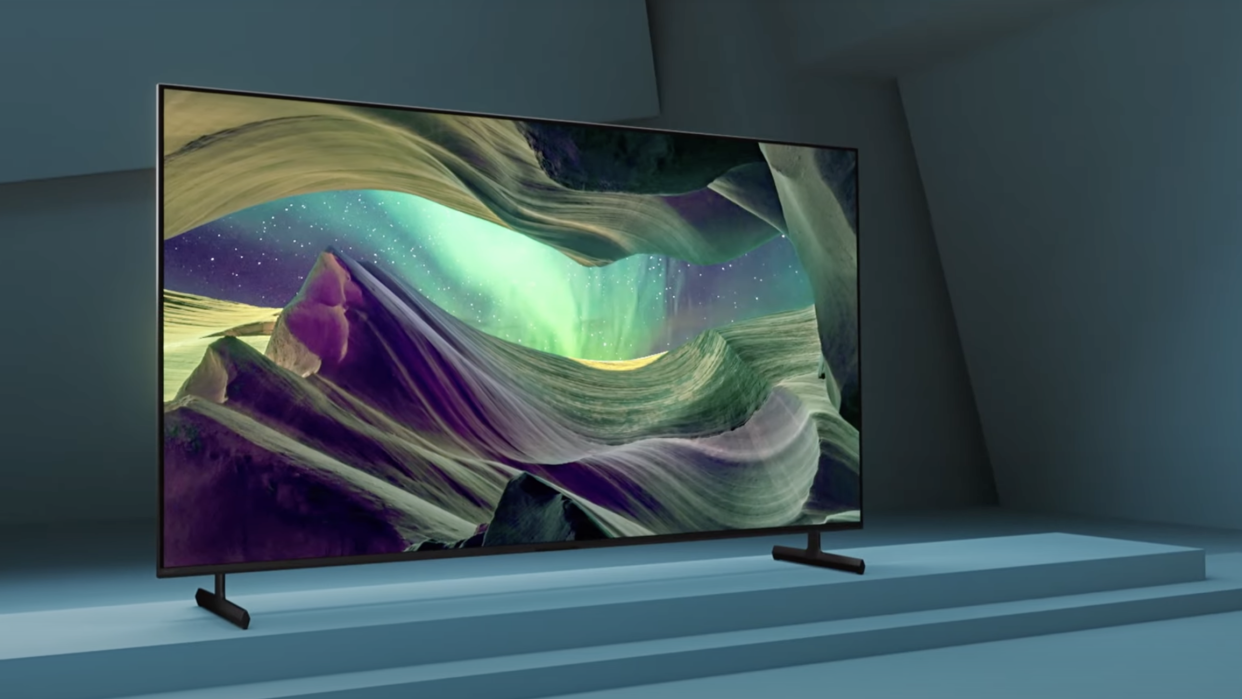
There’s a lot to be said for older technology when it’s been polished and refined, because you tend to get the best of both worlds: tech operating at peak efficiency and the sort of affordability that only comes with longevity. So just because LED-backlit LCD technology in TVs has been around for what feels like decades, that’s no reason to dismiss it. Quite the opposite, in fact, as this Sony X85L review proves.
Sony’s X85 range of LED-backlit LCD televisions has long represented one of the sweeter spots in the company’s extensive TV line-up. And for this ‘L’ series, Sony has given the venerable technology a right old fettling to make it a contender for the best TVs money can buy, certainly one of the best Sony TVs. So are these changes for the better and is the X85L a winner?
Sony X85L: Price & Release Date
The Sony X85L is on sale now, in 55-inch (as reviewed), 65-inch and 75-inch formats. For the remainder of this review I'm talking about the KD-55X85L model, which in the United Kingdom will set you back pennies short of £1,000. In Australia it's AU$1695 or thereabouts. Meanwhile, Sony has been umming and ahhing about whether or not to offer this range in the United States - so at the time of writing there’s no further information.
The X85L is by no means your only choice if you want a screen of this sort of size at this sort of money though. Every TV manufacturer, whether big, medium or miniscule, has an alternative with which to tempt you. So why should you put your hard-earned cash Sony’s way? Let's dive deeper...
Sony X85L review: Features & What's New?
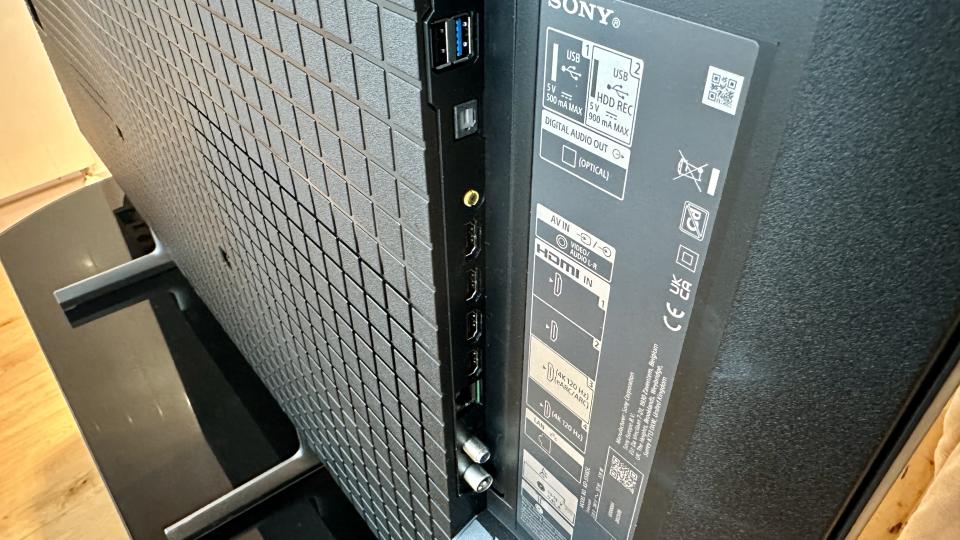
The ‘L’ incarnation of the X85 gets a very significant new feature: local dimming. The full-array LED backlights behind its VA LCD panel are divided into what’s confidently estimated to be 24 individual dimming zones. No, that’s nothing like as many discrete zones as some alternative designs can offer - but if I’ve learned anything from these years of reviewing televisions, it’s that raw numbers don’t always tell the whole story.
These dimming zones are controlled, as is the rest of the Sony’s picture performance, by the X1 processing engine. It’s not Sony’s state-of-the-art processor - that’s the Cognitive XR engine that’s fitted to pricier models - but it’s still a proven performer.
Physical connections consist of four HDMI inputs, a couple of aerial binding posts for the integrated TV tuners, a pair of USB slots, an Ethernet socket, a composite video input and a digital optical output. Wireless stuff is taken care of by Bluetooth 4.2 and dual-band Wi-Fi.
Of those four HDMI inputs, two are running at full-on HDMI 2.1 specification and each can deal with eARC connections too. Because this is a Sony TV, these two inputs can unlock a few Playstation 5-specific features: Auto HDR Tone Mapping and Auto Genre Picture Mode are supported. Strangely, though, gamers must choose between 4K@120Hz or Dolby Vision HDR - if the latter appeals more than the former then you’ll be gaming at 4K@60Hz, and if the former seems a better bet you’ll have to go without Dolby Vision HDR. And because this is a Sony TV, there’s no facility to access HDR10+ dynamic metadata in any circumstances.
The KD-55X85L has an auto-calibration feature that allows it to maximise the output of its two-channel, 20W audio system to your particular room. It’s a rapid and accurate process, and the Sony’s ability to deal with Dolby Atmos soundtracks is a welcome touch too.
Sony X85L review: Performance
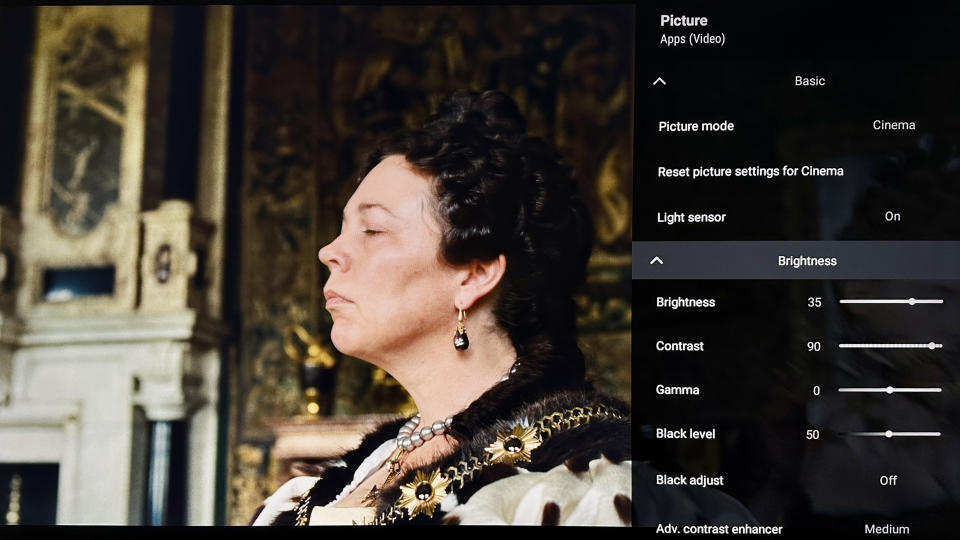
There are limits, of course, but one of the things that’s so admirable about the way the Sony KD-55X85L performs is just how agnostic it is. Doesn’t matter if you’re watching a 4K UHD movie via a Blu-ray player, streaming some content from one of the world’s more popular streaming services, getting your games console kicks, or asking the TV to upscale a bit of bog-standard off-air broadcast content, the Sony doesn’t complain and doesn’t have obvious favourites.
But naturally it looks its best when given the best stuff to work with. A 4K UHD Blu-ray disc with a helping of Dolby Vision HDR counts as ‘the best’, and in this circumstance there’s plenty to enjoy. The Sony controls its fancy-pants new backlighting well, keeping haloing to a minimum and offering nice wide contrasts - all while maintaining detail levels both in the darkest and the brightest parts of an image.
This is far from the brightest TV you'll have ever seen, but its ability to let bright whites and deep blacks coexist without problems is impressive - and it gets quite a lot closer to ‘true’ black than a lot of LCD TVs I could mention.
The rest of the colour palette gives a good account of itself, too. The X85L strikes a really nice balance between punchy and natural, and seems capable of teasing out even the finest variations in tone and temperature. This is particularly apparent with skin tones - the Sony has any number of convincing observations to make in this department.
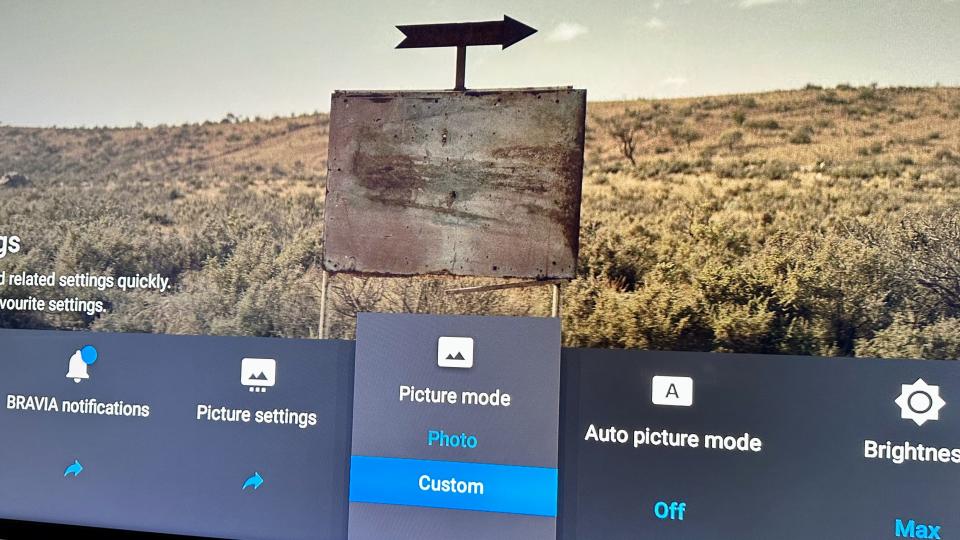
Edge-definition is good, even when the screen is asked to describe fine patterns or tricky textures. Depth of field in those scenes that require it is impressive too. And the X85L is, on a pound-for-pound basis, one of the most accomplished TVs I’ve seen recently where motion control is concerned. It keeps on-screen motion under complete control, and as a result its images are as natural as can be.
And to an extent, the X85L is a decent upscaler of lower-resolution content too. Certainly contemporary TV broadcasts are handled confidently: detail levels fall away just a little, and edges are drawn with a little less positivity, but contrasts and motion in particular remain admirable. It’s not until you get all the way down to some properly antiquated content that the Sony’s pictures soften up and lose definition - and it’s far from the only TV that suffers in this way.
Sound, by way of mild contrast, is a more qualified success. By prevailing standards it has quite surprising low-frequency presence, and for a two-channel set-up it sounds relatively unconfined. But it’s no fan of volume, it’s not dynamic in the slightest, and the overall sonic signature is rather matter-of-fact. Sony has been good enough to offer a fair bit of space below the bottom of the X85L into which one of the best soundbars might fit nicely though…
Sony X85L review: Design & Usability
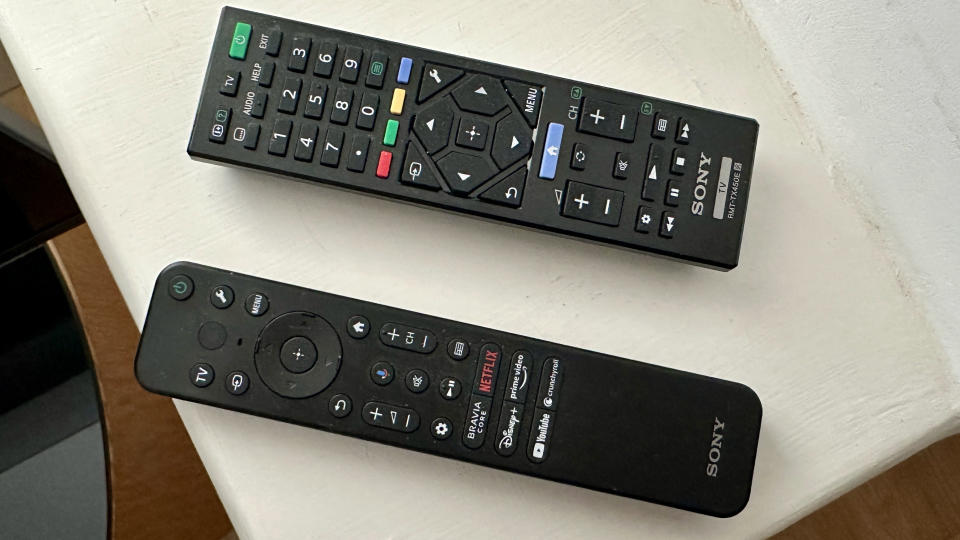
The television is supplied with a couple of remote control handsets - both are quite small. One feels quite nasty in the hand, has too many buttons, and covers every eventuality. The other feels quite a lot nicer and has a button-count that’s restricted to the essentials.
Both remotes have a ‘mic’ button - this is a Google TV device, and so Google Assistant voice control is available. Google TV itself is a good, if rather pushy and shouty, smart TV interface - and Sony has enlisted YouView in order to provide access to all the UK’s catch-up TV services. Which will only serve to further annoy owners of Philips’ Google TV-equipped models, which all go without.
Setup is pretty straightforward. Not for the first time, Sony has struck a very pleasant balance between in-depth and friendly where user menus are concerned - so the inveterate tweakers among us are catered for, but those for whom life is too short can get a very satisfactory balanced worked out in next-to-no time.
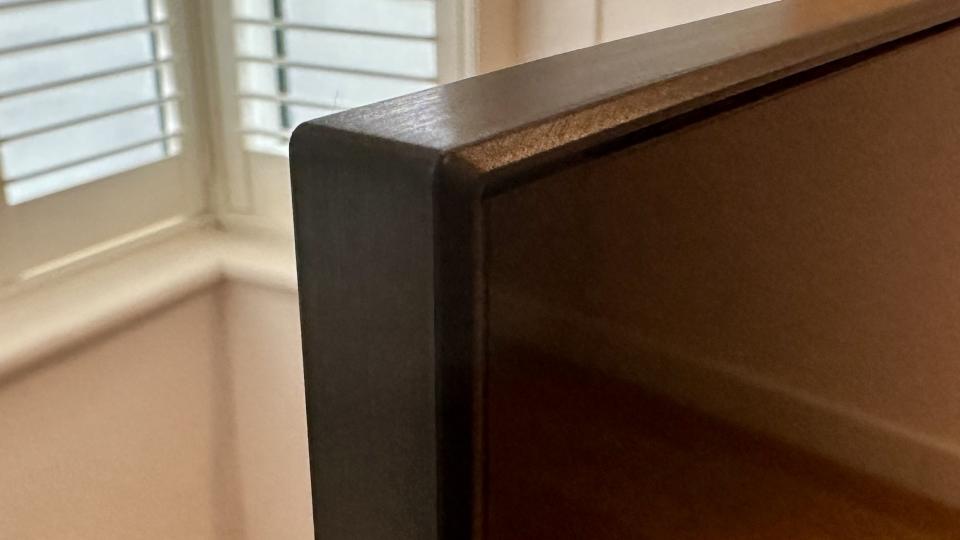
As far as ‘design’ is concerned, not much has happened here compared to its X85J predecessor and the X85L looks all the better for it. Its black bezels are very slim, the branding is discreet to the point of invisibility, and the ‘blade’ feet on which the chassis stands can be fixed in a couple of different positions (which means the width of the surface it’s standing on becomes less critical than it otherwise would be).
If you’d rather wall-mount your new TV, the ‘D’ bit of 1228 x 709 x 56mm (HxWxD) means it’s a slimmer and better-looking proposition than your usual backlit LCD screen.
Build quality is typical Sony, which means it’s basically impeccable. The chassis is almost entirely plastic, but it all feels very fit for purpose and properly put together.
Sony X85L review: Verdict
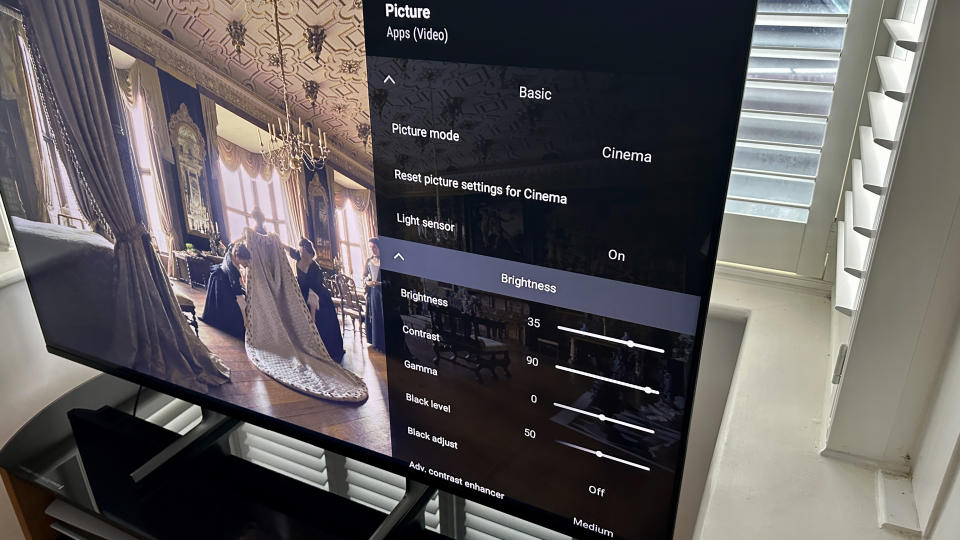
The Sony X85L is a beautifully judged television for the money. Its doesn’t have the in-yer-face brightness or colour lividity of some of the rivals that may seem more impressive in the immediate ‘first look in the showroom’ way - but its talents are such that it’s a better bet than any of them in the mid-to-long term.
Also consider
It hasn’t been all that long since I reviewed Panasonic’s TX-55MX950 Mini-LED telly - but it’s been long enough for the price to come down to something very close to that of the Sony. The Panasonic is different to, rather than overtly better or worse than, the Sony - certainly it’s brighter, and the fact that it supports every HDR standard is not to be sniffed at either. It’s not tremendous when viewed off-axis, though, and doesn’t control its backlighting quite as well either.
